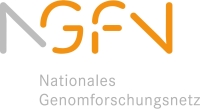
max planck institut
informatik
informatik



|
Welcome to the Oncogene project website.
Cancer is a disease of the genome. Somatic activation of proto-oncogenes and inactivation of tumor suppressor genes by gene copy number alterations, genomic rearrangements and subtle sequence alterations (mutations) such as point mutations and small insertions and deletions cause genetically encrypted alterations of intracellular signaling pathways that the tumor cell becomes "addicted" to. This concept of oncogene addiction has been empowered by the notion that genetically activated oncogenes are ideal targets for anti-cancer drugs: the Her2-targeted antibody trastuzumab shrinks tumors in women with ERBB2/Her2-amplified breast cancer; the Abl/ Kit/ PDGFR inhibitor imatinib induces responses in patients with chronic myeloid leukemia carrying the Bcr/Abl translocation as well as in gastrointestinal stromal tumors with mutations in KIT or PDGFRA; finally, EGFR-mutant lung tumors show sensitivity to the EGFR inhibitors gefitinib and erlotinib. This clinical success has sparked systematic efforts to comprehensively annotate the genomes of all major human cancer types. Given the role of mutations that activate proto-oncogenes in large fractions of cancers, these efforts are particularly focused on re- sequencing of coding exons of human genes. These cancer genome re-sequencing projects have in some cases reached the dimension of all fully annotated genes in the human genome. Thus, we are expecting a complete compendium of human oncogene mutations in the near future. However, no mechanisms currently exist to explore the functional consequences of these mutations in a systematic fashion in order to pinpoint the signaling perturbations that are irreversibly wired by such lesions in the tumor cell and in patients. Such approaches are, however, essential for translating cancer genomics discoveries into clinical care and for advancing the development of novel molecular treatment strategies. Our research consortium ONCOGENE DEPENDENCIES follows a two-sided approach to help translate cancer genome discoveries into clinical practice. This approach includes establishment of sensitive lesion detection for the deployment in clinical diagnostics and personalized treatment of cancer patients and the development of methods that afford in-depth cellular and biochemical characterization of oncogenic lesions in cellular models. The implementation of somatic genetic diagnostics into clinical routine will enable connecting molecular findings to clinical phenotypes elicited by treatment with targeted cancer therapeutics. On the other hand, in depth cellular and biochemical analyses of oncogenic mutants will enable pinpointing critical signaling pathways in order to advance target validation and drug discovery. |
|

